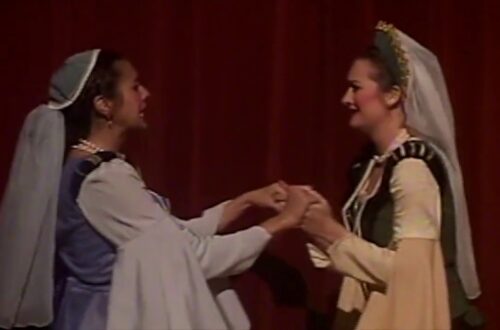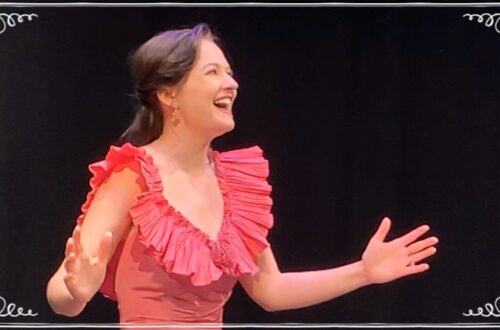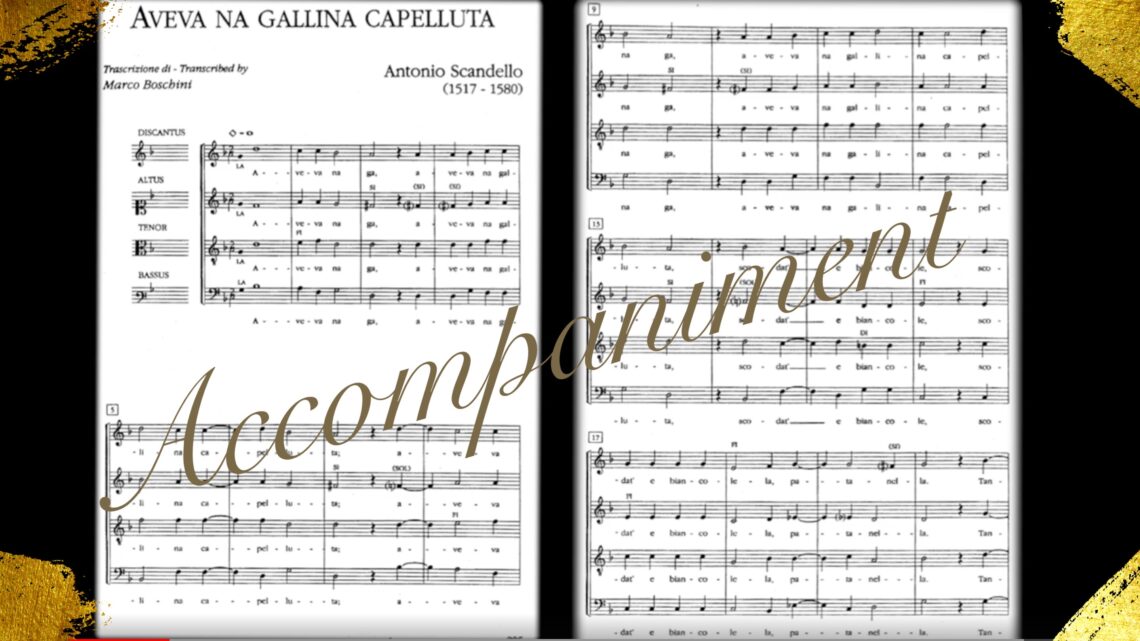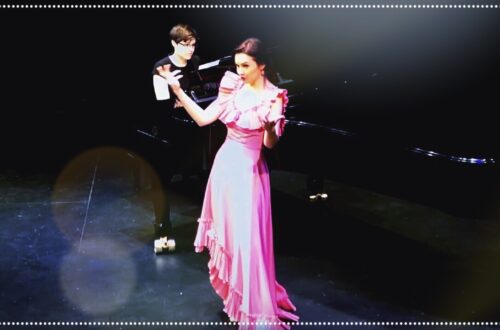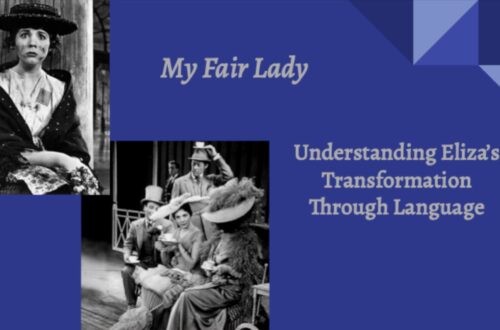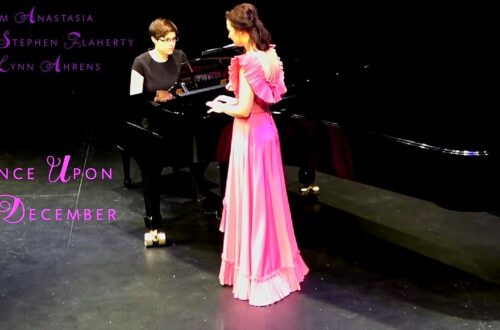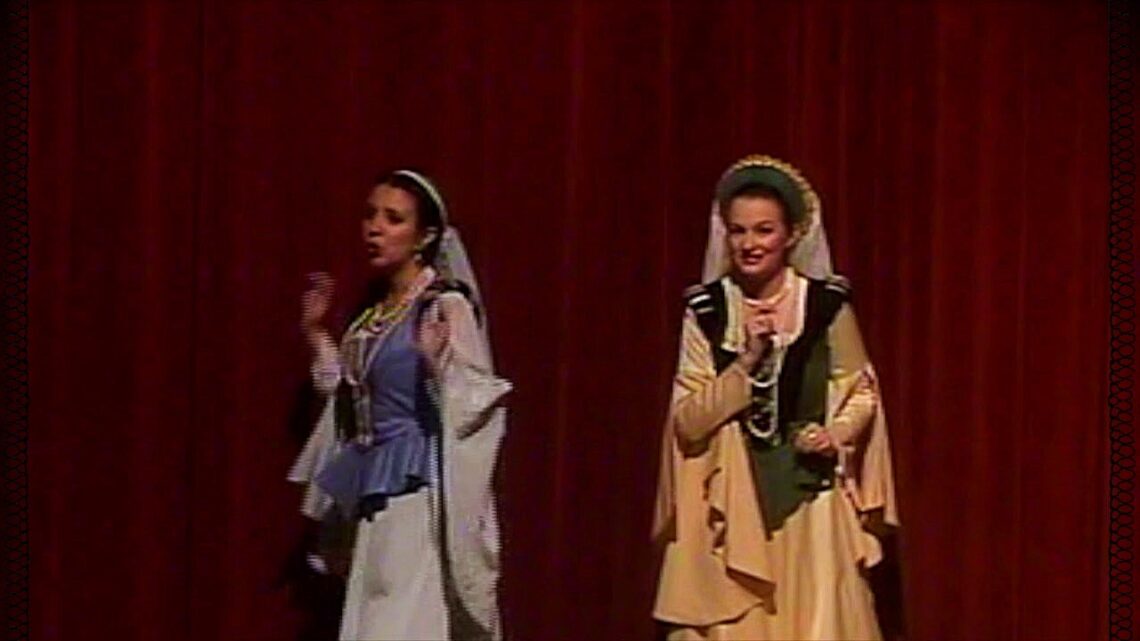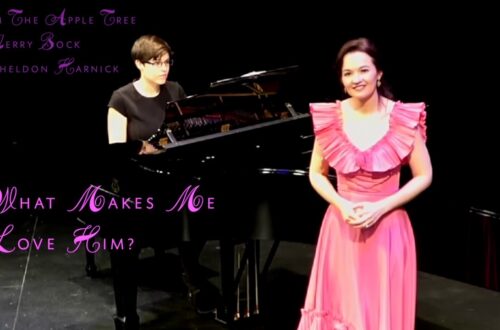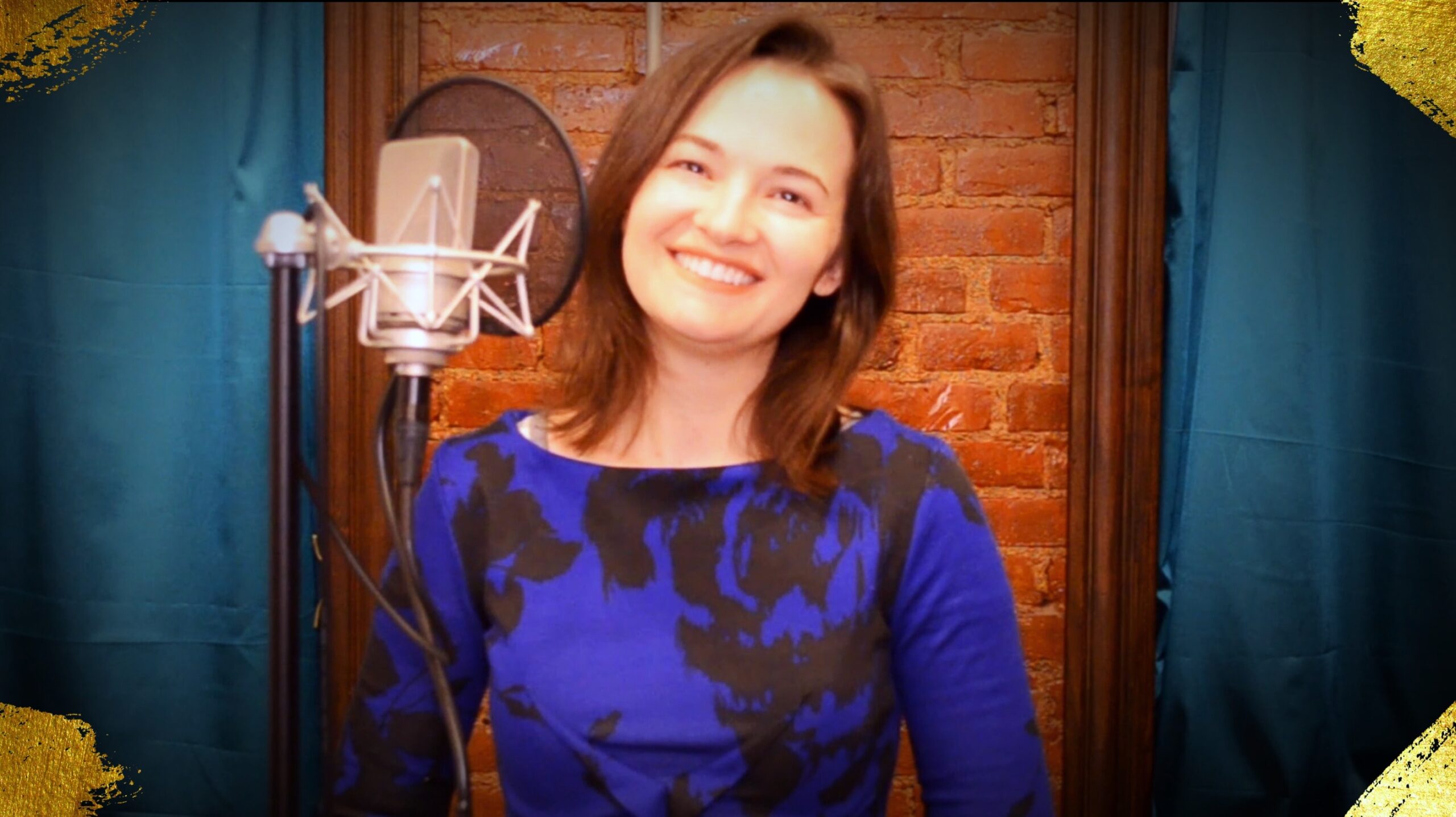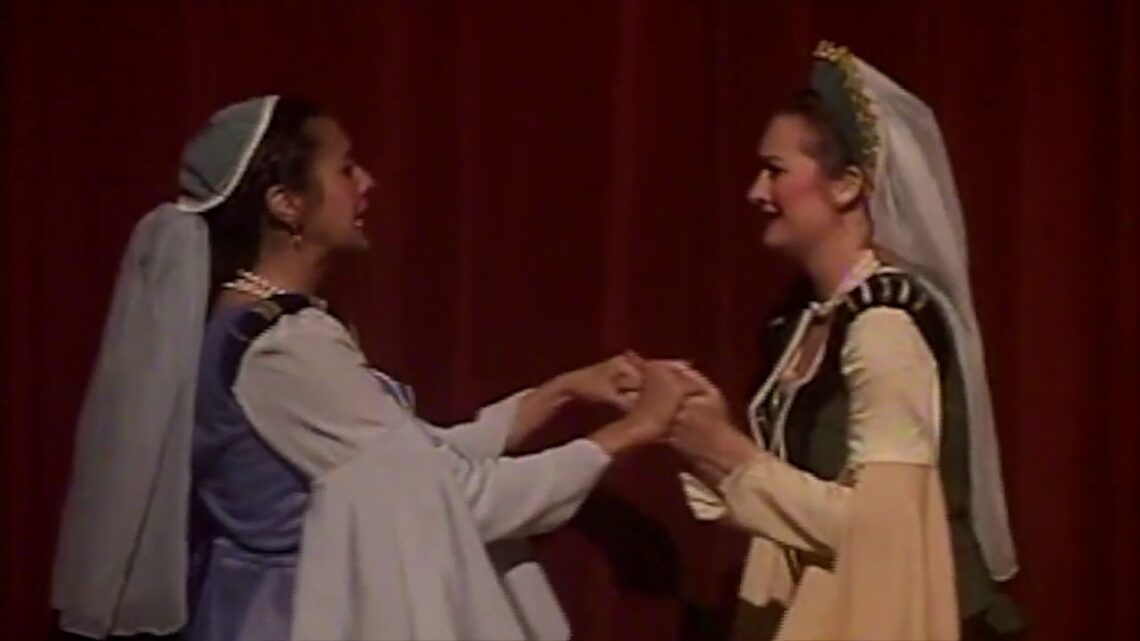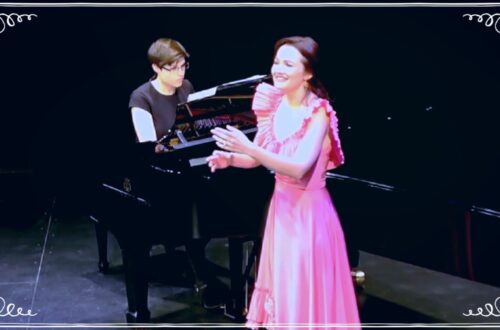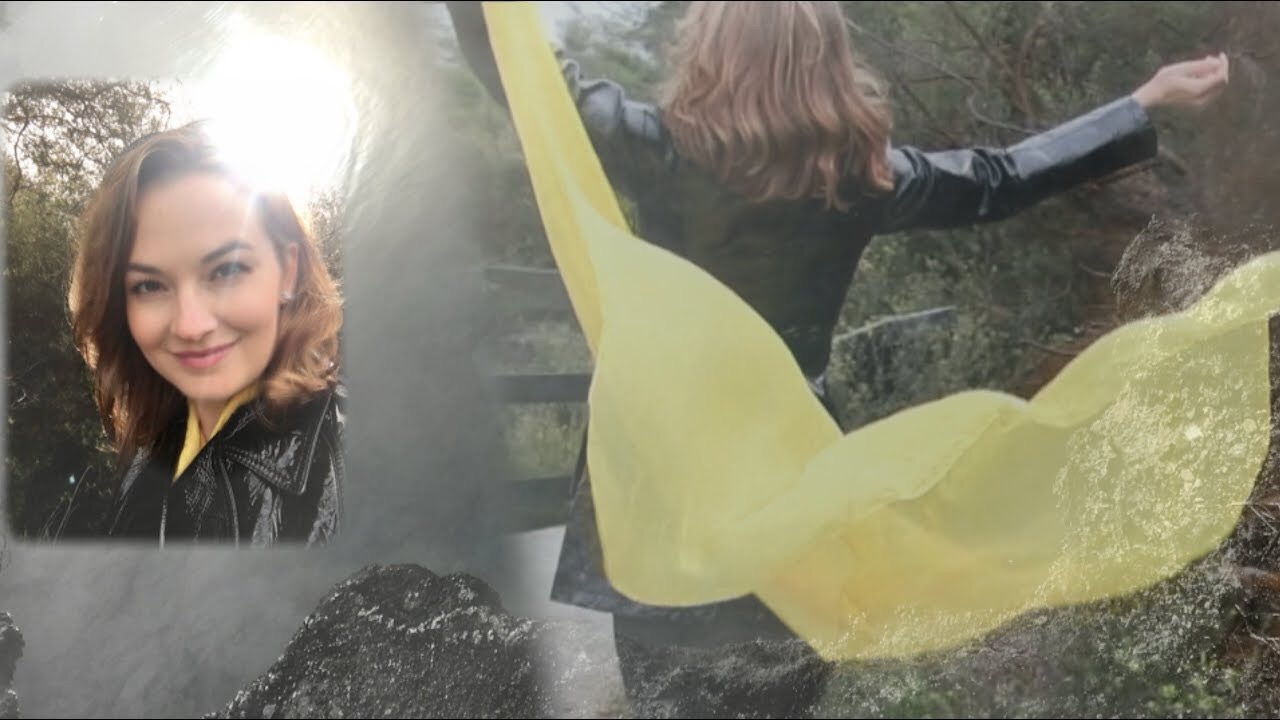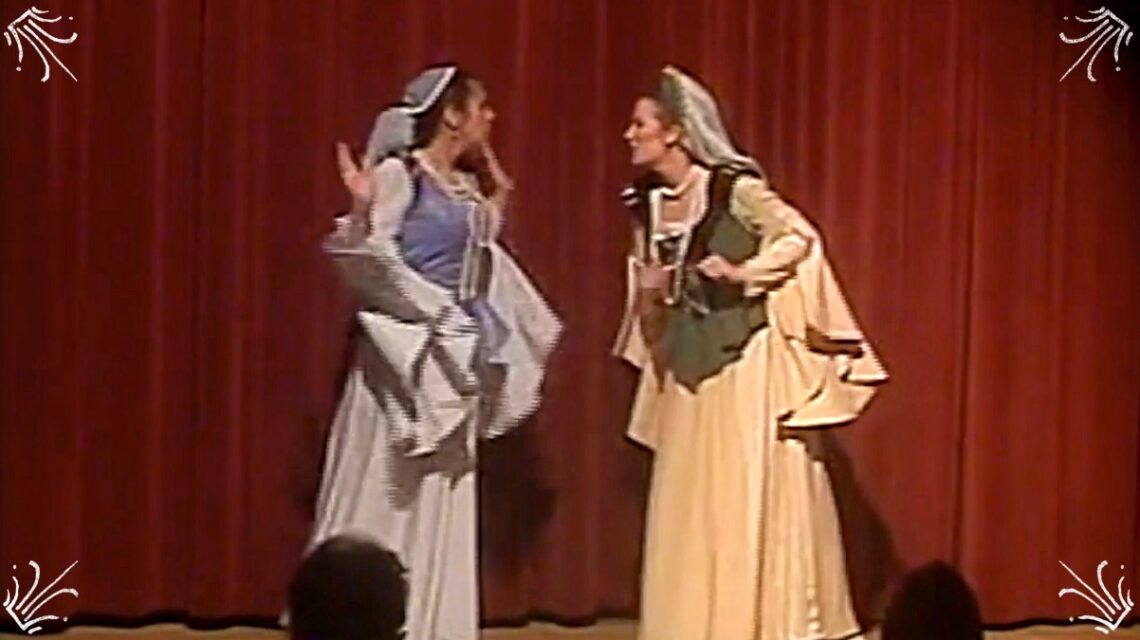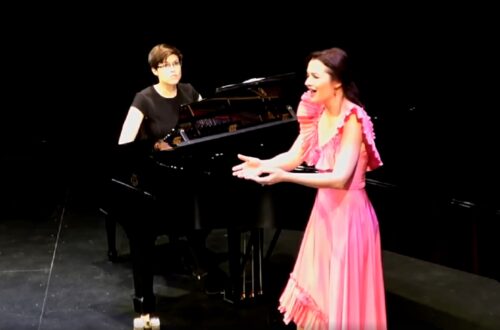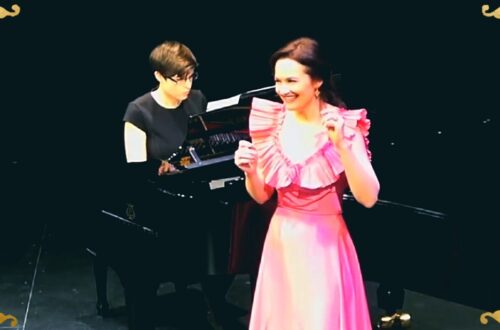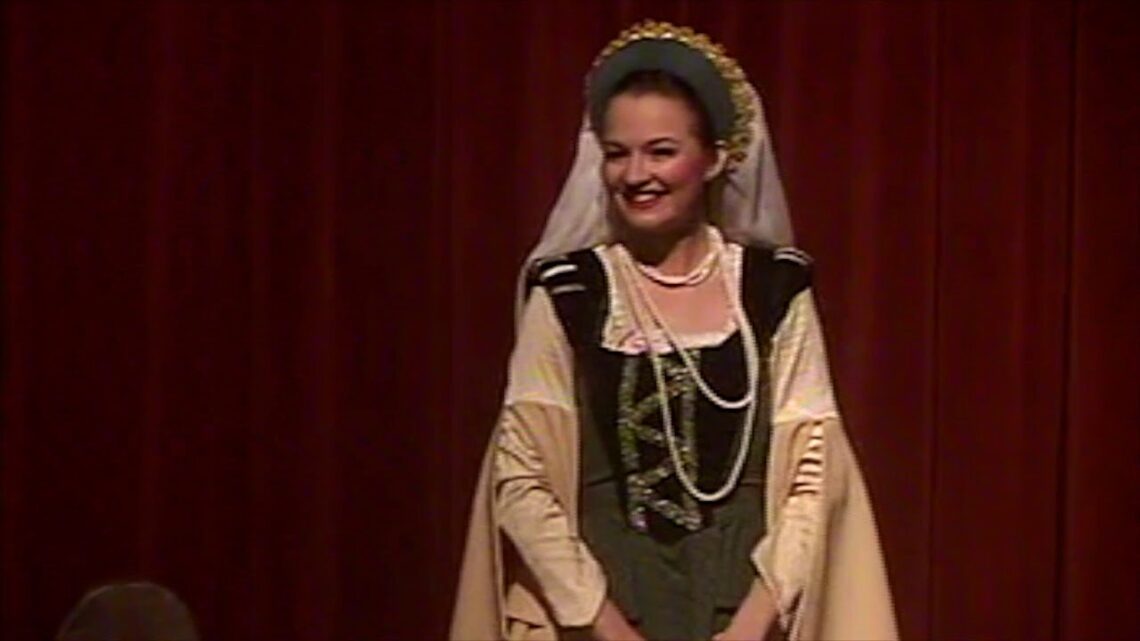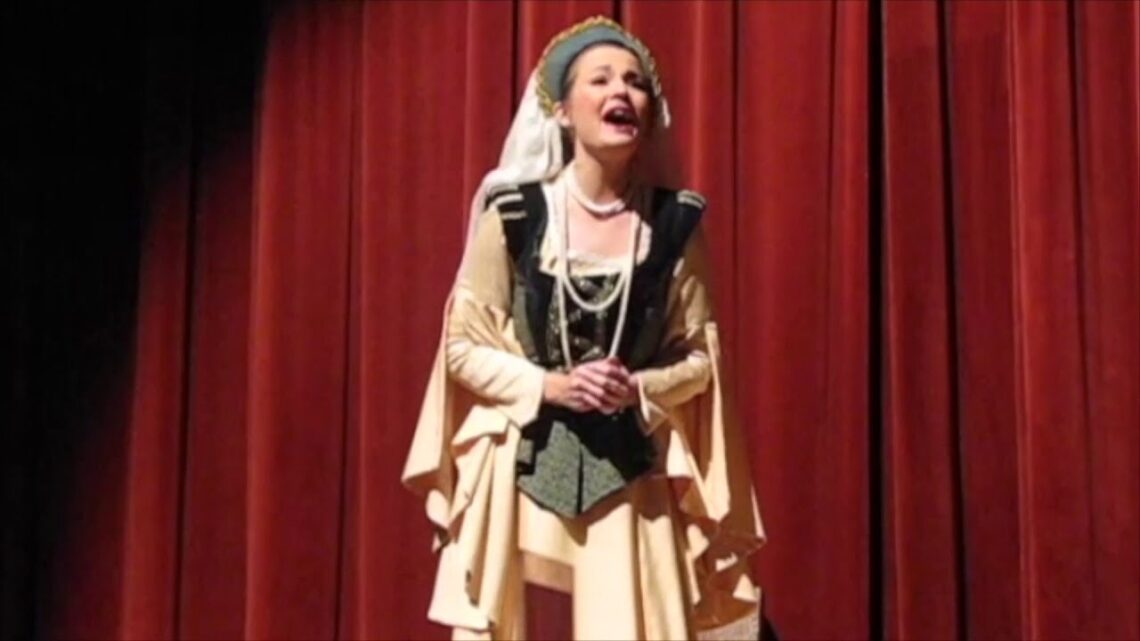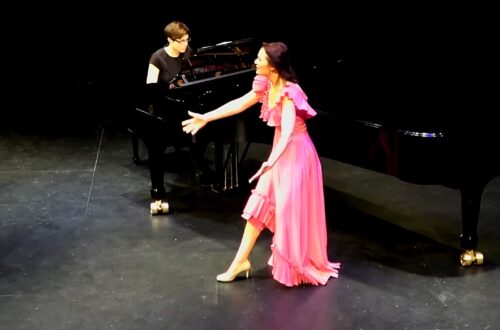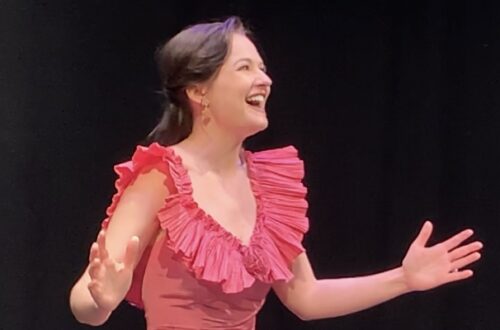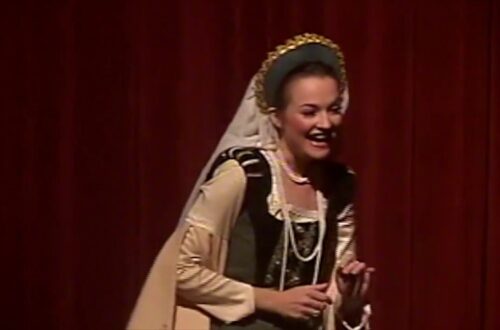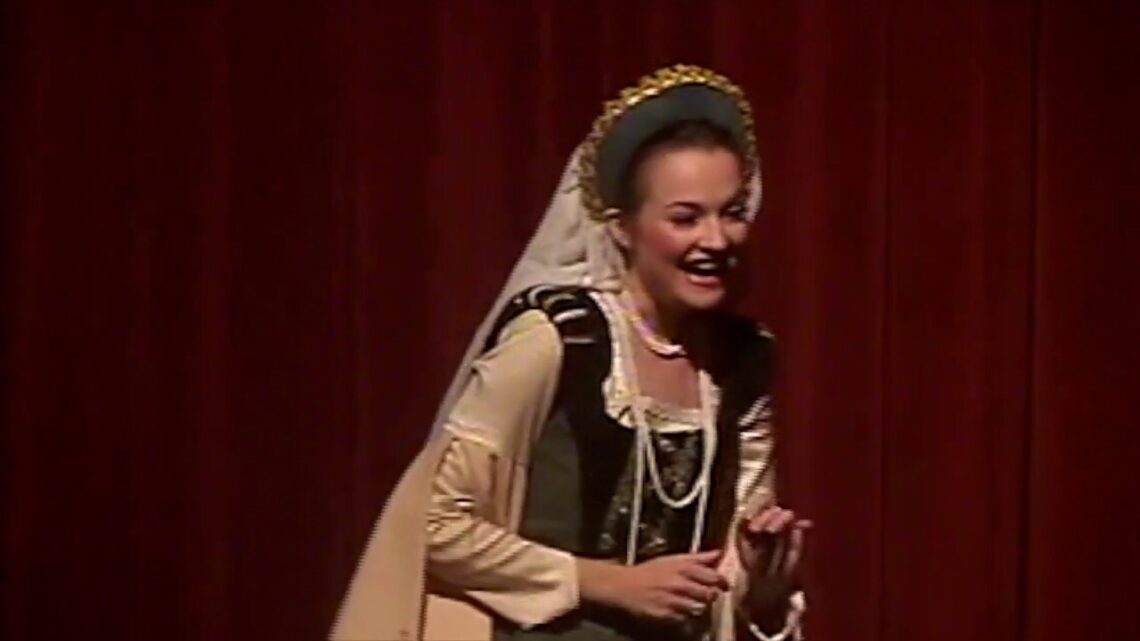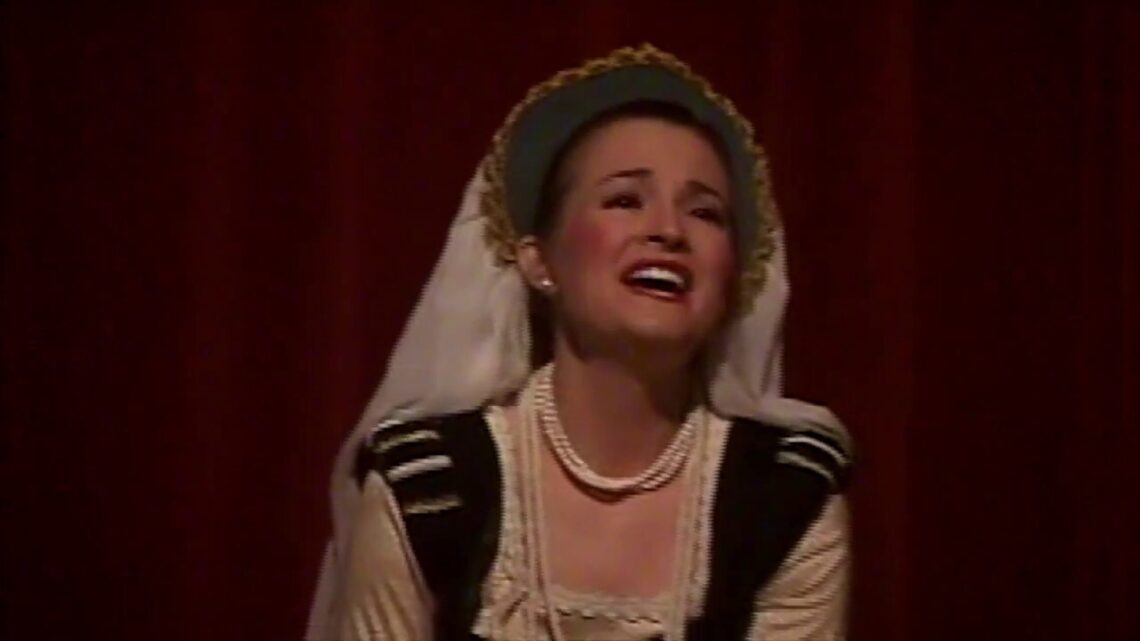-
Shakespeare Musical Preshow
Today’s #WeeklyWednesday is a throwback to one of the most fun productions I’ve been a part of ? I hope you enjoy this excerpt from the musical pre-show I designed for Coronado Playhouse‘s production of Shakespeare’s “Much Ado About Nothing”! My talented fellow performers and dear friends are Renee Ulloa-McDonald, Carly Pandza, and Danielle Orner (Gallagher) ? ? The songs featured here are: 0:06 “Sumer is icumen in,” a mid-13th century round, written in the Wessex dialect of Middle English. 0:49 “Fair Phyllis,” an English madrigal by John Farmer, published in 1599. 2:11 “Now Is the Month of Maying,” an English ballett (similar to a madrigal) by Thomas Morley, published…
-
Accompaniment: Aveva na gallina capelluta
Back with an accompaniment for this #WeeklyWednesday. I hope it helps you rehearse or learn the piece! If you’d like an mp3 of the accompaniment, just send me a request ? Though traditionally set for four voices a cappella, it also works well as a duet with the accompaniment filling in the other vocal lines, as in my version here: “Aveva na gallina capelluta” was composed by Antonio Scandello (1517-1580). I was first exposed to this (and many other early and Renaissance pieces I’ve come to love) while living in Naples, Italy, and singing with an a capella choir (check out their lovely performance of this piece!). That’s an experience…
-
Il est bel et bon
Today’s #WeeklyWednesday is another duet with my adopted sister, Renee Ulloa-McDonald ? This video is from a musical pre-show I designed for Coronado Playhouse’s production of Shakespeare’s “Much Ado About Nothing” and it was so much fun performing these pieces with her!! “Il est bel et bon” was composed by Pierre Passereau and first published in 1536 in Tiers livre contenant XXI chansons à quatre esleves de plusieurs livres, no. 7. You can find translations and more information on the piece here. I was first exposed to “Il est bel et bon” (and many other early and Renaissance pieces I’ve come to love) while living in Naples, Italy, and singing…
-
Aveva na gallina capelluta
Today’s #WeeklyWednesday is another duet with my adopted sister, Renee Ulloa-McDonald ? This video is from a musical pre-show I designed for Coronado Playhouse’s production of Shakespeare’s “Much Ado About Nothing” and this piece is probably my favorite of our duets! “Aveva na gallina capelluta” was composed by Antonio Scandello (1517-1580). I was first exposed to this (and many other early and Renaissance pieces I’ve come to love) while living in Naples, Italy, and singing with an a capella choir (check out their lovely performance of this piece here). That’s another experience I’m so grateful for, and from which I have many happy memories ? “Much Ado About Nothing” was…
-
Vecchie letrose
Today’s #WeeklyWednesday is a duet with my adopted sister, Renee Ulloa-McDonald ? This video is from a musical pre-show I designed for Coronado Playhouse’s production of Shakespeare’s “Much Ado About Nothing” and it was so much fun performing these pieces with her!! “Vecchie letrose” was composed by Adrian Willaert and first published in 1545 in Canzone villanesche alla napolitana, no. 5. I’ve seen the text both in Italian and also in Neapolitan; our version is using the Italian text, and you can download the SATB arrangement in Italian for free here. Paul Archer has the text in Neapolitan with a nice translation into English, plus more info about the piece…
-
It Was a Lover and His Lass
Today’s #WeeklyWednesday is a #Renaissance piece by Thomas Morley that was likely composed for the original production of Shakespeare’s comedy “As You Like It.” Two pages sing “It Was a Lover and His Lass” for Touchstone in Act 5, Scene 3. Shakespeare’s plays included a number of songs, but little information about the music used in his productions has survived. Some pieces were popular songs from the period (particularly the dances mentioned), others had lyrics written by Shakespeare set to an existing melody, and some tunes were likely original for each play. Referencing Ross W. Duffin’s excellent book on the topic (p. 221-223 of Shakespeare’s Songbook), this song is likely…
-
O Sweet Oliver
Today’s #WeeklyWednesday is a #Renaissance piece from Shakespeare’s comedy As You Like It. The character Touchstone sings “O Sweet Oliver” in Act 3, Scene 3. Shakespeare’s plays included a number of songs, but little information about the music used in his productions has survived. Some pieces were popular songs from the period (particularly the dances mentioned), others had lyrics written by Shakespeare set to an existing melody (though the name of the melody often was not included), and some tunes were likely original for each play. When Shakespeare used a popular song, it often communicated an additional meaning – a joke or common reference that period audiences would have well-understood…
-
Accompaniment: Al fonte, al prato (Giulio Caccini)
Today’s #WeeklyWednesday is the accompaniment to Guilio Caccini’s #Renaissance piece “Al fonte, al prato,” first published in his 1614 work “Nuove musiche e nuova maniera di scriverle.” Here’s a link to a free transcription of the sheet music and to the text for all four verses. Below is my performance of the piece ? FYI: I’m a singer, not an accompanist (and certainly not one who can improvise well from figured bass)! I believe I made this accompaniment from a midi file, and it doesn’t have any variation across the four verses (though it traditionally should). I hope it helps you when preparing the piece – and if you’d like…
-
Al fonte, al prato
Today’s #WeeklyWednesday is another #Renaissance piece – composed by Guilio Caccini, first published in his 1614 work “Nuove musiche e nuova maniera di scriverle.” Linked here is a free download of the sheet music, and this link has the text to all four verses here. I believe I made my accompaniment from a midi file – I’ve shared it below, if you’d like to sing along ? For this video, I’ve combined two performances – the first is from the musical pre-show I designed for Coronado Playhouse’s production of Shakespeare’s “Much Ado About Nothing,” and the second is from my undergraduate senior recital many years ago (I was 18) ?…
-
Come Again (John Dowland)
Today’s #WeeklyWednesday is a Renaissance piece composed by John Dowland (lyrics anonymous), published in his 1597 First Booke of Songes or Ayres. My performance comes from the musical pre-show I designed for Coronado Playhouse’s production of Shakespeare’s Much Ado About Nothing. I won awards from both the Coronado Playhouse and San Diego ACT (Aubrey Awards) for my work on and in the show – for sound design, musical direction, and acting (as Ursula/Balthasar)! It was a wonderful challenge that has inspired a lot of very enjoyable work! That production was also just incredibly fun to be involved in, particularly because of the dear friends I made from my “By’r…

